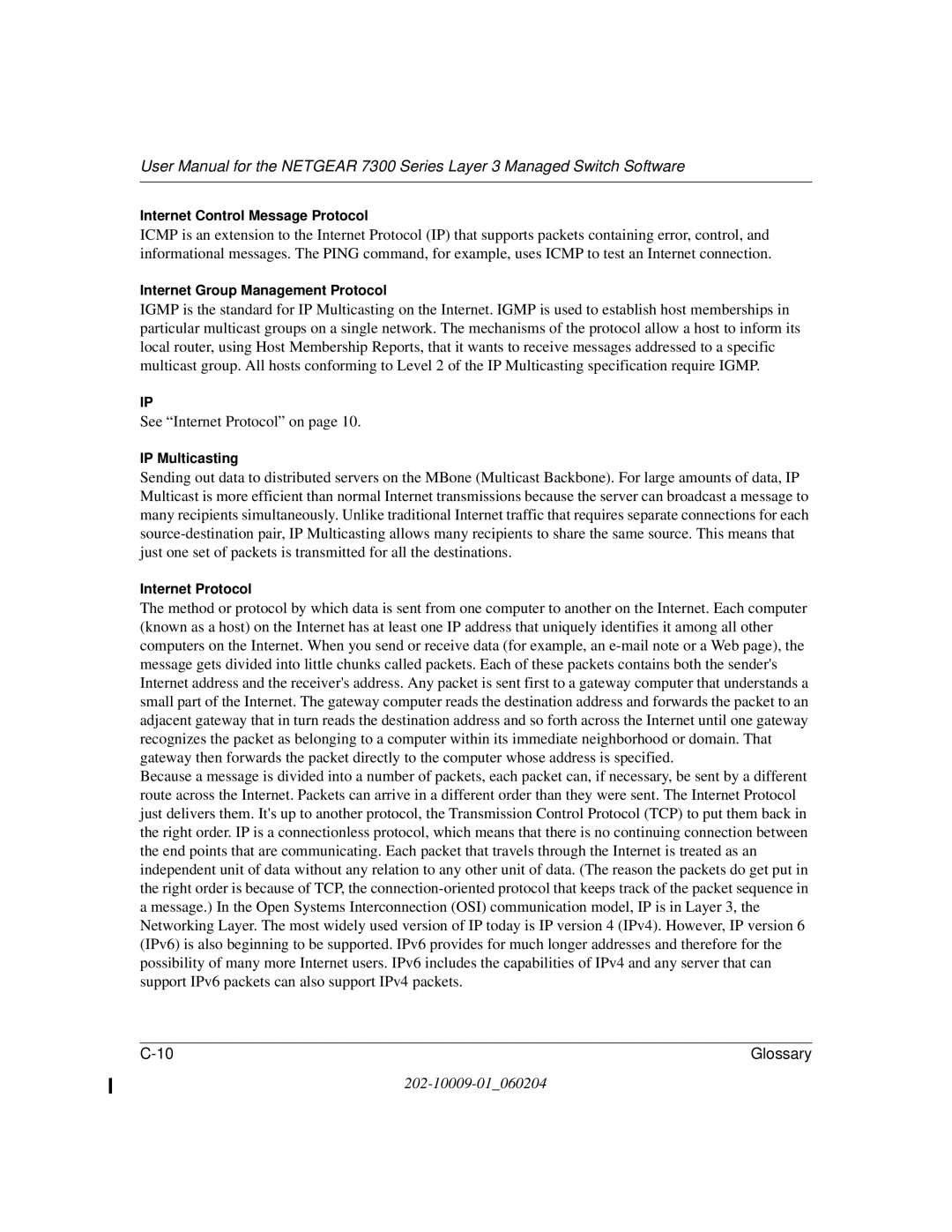
User Manual for the NETGEAR 7300 Series Layer 3 Managed Switch Software
Internet Control Message Protocol
ICMP is an extension to the Internet Protocol (IP) that supports packets containing error, control, and informational messages. The PING command, for example, uses ICMP to test an Internet connection.
Internet Group Management Protocol
IGMP is the standard for IP Multicasting on the Internet. IGMP is used to establish host memberships in particular multicast groups on a single network. The mechanisms of the protocol allow a host to inform its local router, using Host Membership Reports, that it wants to receive messages addressed to a specific multicast group. All hosts conforming to Level 2 of the IP Multicasting specification require IGMP.
IP
See “Internet Protocol” on page 10.
IP Multicasting
Sending out data to distributed servers on the MBone (Multicast Backbone). For large amounts of data, IP Multicast is more efficient than normal Internet transmissions because the server can broadcast a message to many recipients simultaneously. Unlike traditional Internet traffic that requires separate connections for each
Internet Protocol
The method or protocol by which data is sent from one computer to another on the Internet. Each computer (known as a host) on the Internet has at least one IP address that uniquely identifies it among all other computers on the Internet. When you send or receive data (for example, an
Because a message is divided into a number of packets, each packet can, if necessary, be sent by a different route across the Internet. Packets can arrive in a different order than they were sent. The Internet Protocol just delivers them. It's up to another protocol, the Transmission Control Protocol (TCP) to put them back in the right order. IP is a connectionless protocol, which means that there is no continuing connection between the end points that are communicating. Each packet that travels through the Internet is treated as an independent unit of data without any relation to any other unit of data. (The reason the packets do get put in the right order is because of TCP, the
Glossary |
